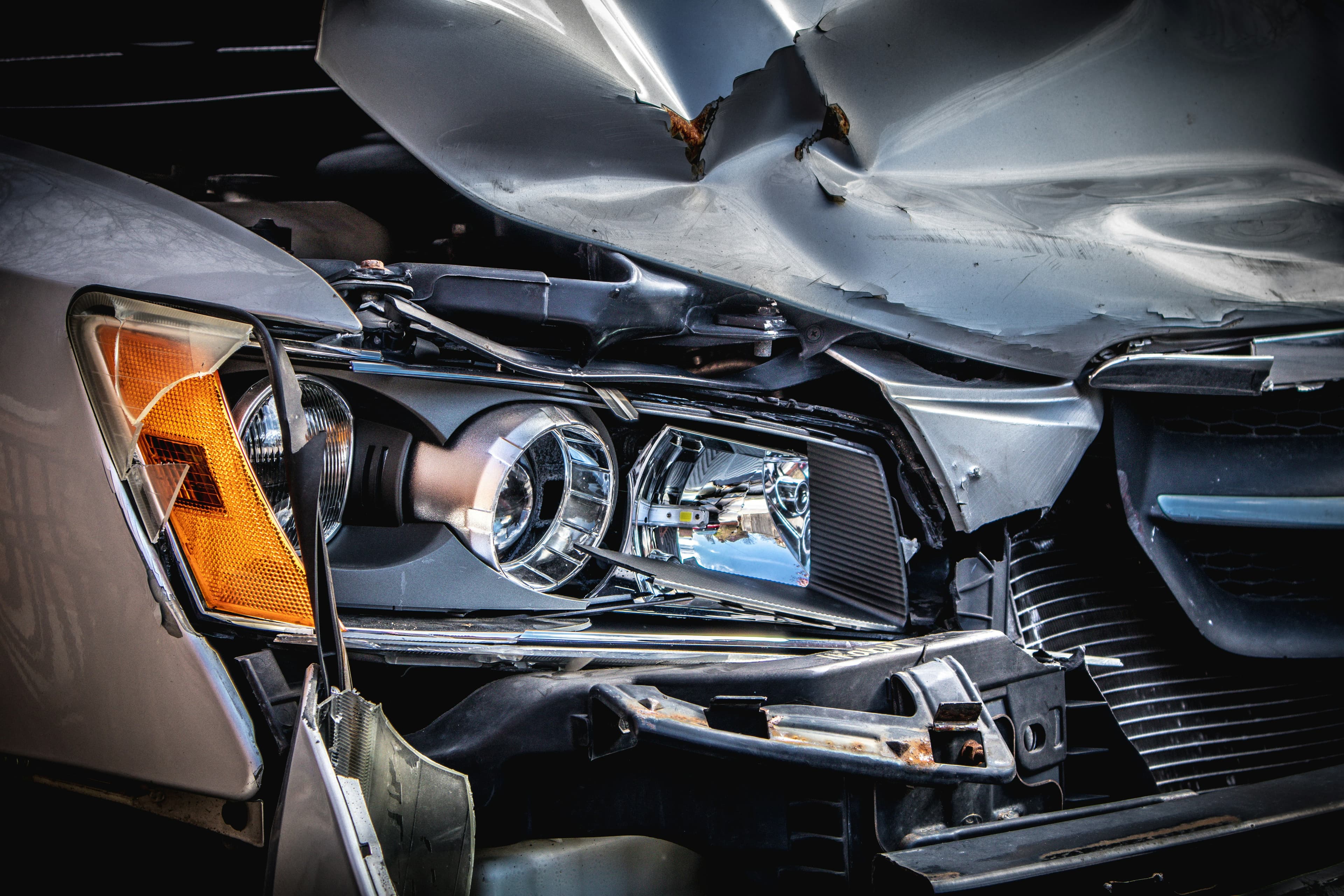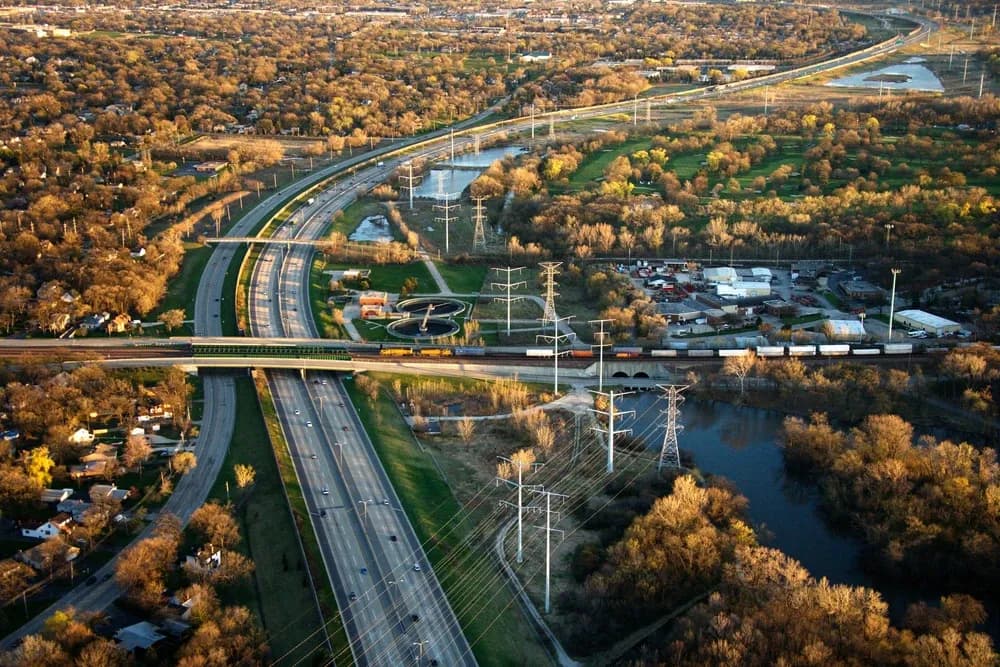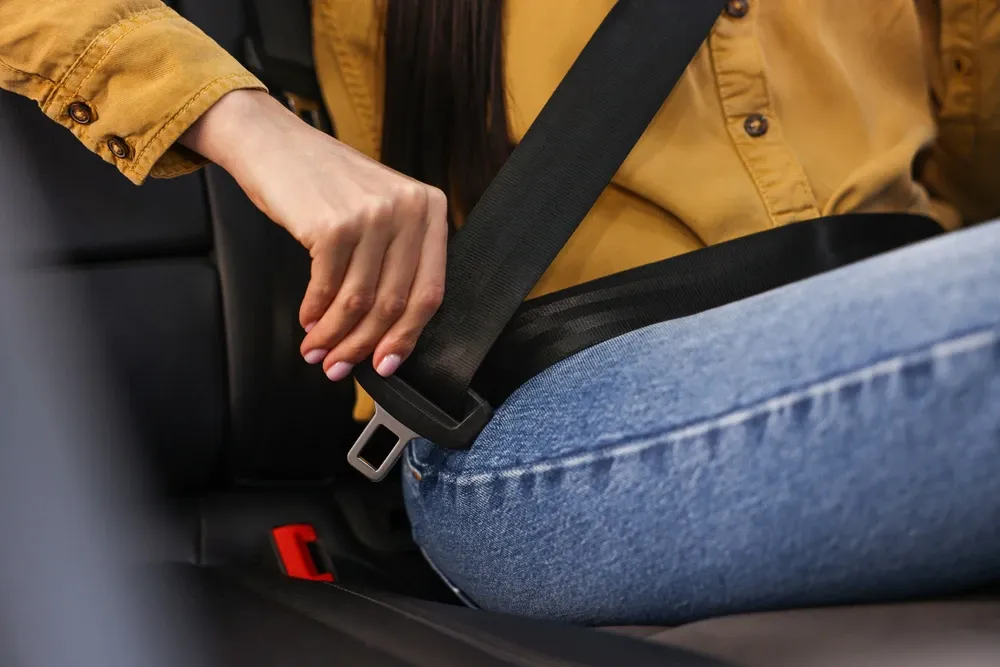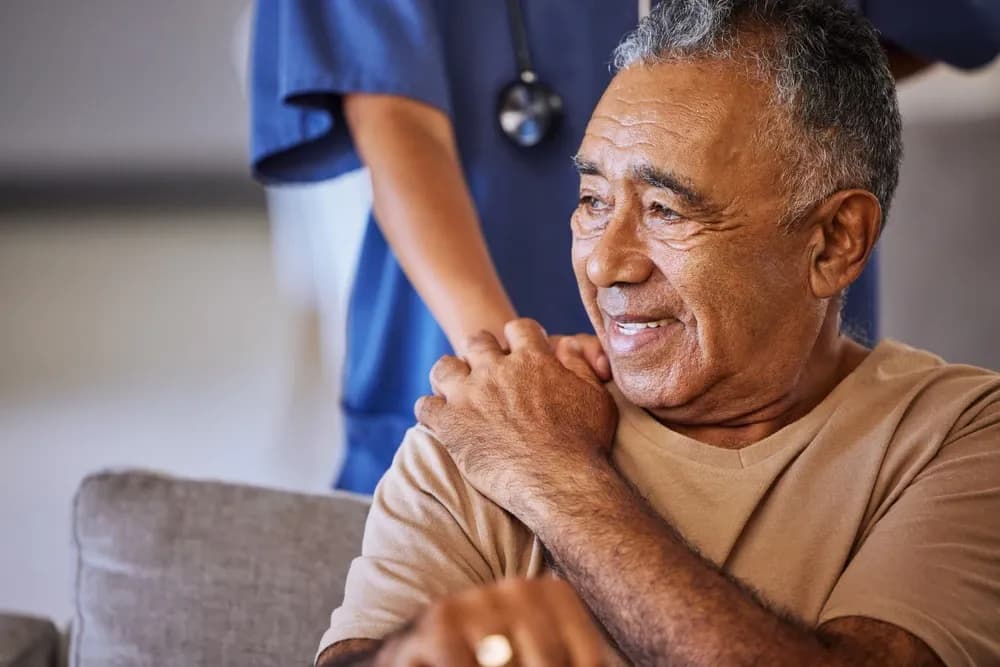What Are Your Rights After a Slip and Fall in Wisconsin
Slip-and-fall accidents can happen anywhere – in a grocery store, on an icy sidewalk, at work, or even at a friend’s house. One moment you’re walking, and the next you’re on the ground in pain. It can be embarrassing, but if you’re hurt, it’s impo...

Slip-and-fall accidents can happen anywhere – in a grocery store, on an icy sidewalk, at work, or even at a friend’s house. One moment you’re walking, and the next you’re on the ground in pain. It can be embarrassing, but if you’re hurt, it’s important to focus on your health and understand your legal rights, especially in Wisconsin. Wisconsin has specific rules about property owner responsibilities (premises liability) and shared fault (often called contributory negligence or comparative fault). This “Know Your Rights” guide will walk you through what to do after a slip and fall in Wisconsin, in plain English:
1. Attend to Your Injuries and Safety.
Your well-being comes first. If you’ve fallen and suspect you’re injured – whether it’s a broken bone, a sprained ankle, a head bump, or even just a lot of pain – seek medical attention immediately. If the injury is serious (for example, you can’t stand up, you hit your head and feel dizzy, or there’s a severe cut), call 911 or have someone call for you. On the other hand, even if you think you’re mostly okay, it’s smart to see a doctor as soon as possible after the fall. Some injuries might not show obvious symptoms right away; for instance, you might not feel the full effect of a concussion or internal injury until hours or days later.
Getting a prompt medical evaluation creates a record of your injuries and connects them to the fall. Follow the doctor’s orders for treatment and keep records of all medical visits, treatments, and bills. Not only is this crucial for your recovery, but if you pursue a claim later, those medical records will be key evidence of what the fall caused. Remember, nothing is more important than your health – broken bones or head injuries can worsen without proper care, so don’t “shake it off” if you’re hurt.

2. Report the Incident to the Property Owner or Manager.
After a slip and fall, once any urgent medical issues are addressed, make sure the accident is reported to whoever is responsible for the property. If you fell in a store or restaurant, find a manager or supervisor on duty and tell them what happened. Most businesses will create an incident report documenting that you fell. Ensure that report is filled out with the basics (date, time, location, how you fell, and injuries). If possible, get a copy of that report or at least the report number. If you fell at someone’s house or a private property, inform the homeowner or occupant. It might feel awkward, but it’s important to let them know you were injured on their property.
Don’t just leave without telling anyone – if you silently leave, not only could it worsen your injury without help, but it also gives the property owner an opportunity to later say they had no idea it happened. Reporting the fall creates an official record and often prompts the property owner to preserve any evidence (for instance, a store might save security camera footage once they know about an accident). Be polite and calm when reporting. You don’t need to go into detailed blame or argument; just state that you fell, where, and how (e.g., “I slipped on the wet floor by the entrance”).
Also, avoid making accusatory statements or, conversely, apologizing for being clumsy. Simply document the occurrence. This step is about notification, not determining fault on the spot. If the manager or owner offers to fill out an incident form, that’s great – it helps document everything. If they don’t, you can follow up with a written notice or email describing what happened, so there’s a paper trail. In some cases (like falls on government property), special rules apply – for example, if you slip on a sidewalk in front of a city-owned building or a state university, you might need to file a formal notice with the government entity very quickly (often within 120 days of the injury).
These rules are called notice requirements, and they’re shorter than the normal lawsuit deadline. If your fall is on public property, it’s a good idea to consult an attorney right away because of those tighter timelines.
3. Document the Scene and Collect Evidence.
If you are able (or if you have someone with you who can help), gather evidence about what caused your fall. Conditions can change quickly – that puddle you slipped on might dry up, the ice might melt or be salted, the torn carpet could get fixed the next day. Take photographs or video of the exact area where you fell as soon as possible. Focus on the hazard: if there was liquid on the floor, a spilled product, ice on steps, a broken handrail, poor lighting – whatever it was, get it on camera. For example, if you slipped on spilled juice in a supermarket aisle, snap a photo of the spill (and maybe the bottle on the floor). If you tripped on a cracked sidewalk, take pictures of the crack and measure its size if you can.
Also, take wide shots to show context (e.g., where on the property it happened, and if any warning signs were present or not). If there were any witnesses – perhaps other shoppers, employees, or bystanders saw you fall or saw the hazard – politely ask for their names and phone numbers. Witnesses might later help corroborate that the dangerous condition existed and that you didn’t just imagine it.
Additionally, preserve any physical evidence. Save the shoes you were wearing and keep them in the same condition (don’t wash off that mud or grease stain, for instance). They could be evidence if someone tries to argue your footwear was inappropriate. Keep the clothing you had on, especially if it was torn or got dirty from the fall (for example, if you slipped in an oily substance, the stains on your clothes could prove it). Write down your own memory of everything while it’s fresh – what you were doing right before the fall, how you fell, what you noticed, and how you felt. These notes can be very helpful later when you’re asked to recall details. All this documentation will support your case if you pursue a claim by showing there was a dangerous condition and linking it to your accident.

4. Know the Property Owner’s Responsibilities (Wisconsin Premises Liability Law).
Being hurt on someone else’s property doesn’t automatically mean the owner was negligent – but you may have a right to compensation if the injury was caused by the owner’s failure to keep the property reasonably safe. In Wisconsin (as in most states), property owners and occupiers have a duty of reasonable care toward people lawfully on their property. This means they should maintain the premises and fix or warn about dangers that they know about or should know about. For example, a store should clean up spills within a reasonable time or put out a “Caution: Wet Floor” sign to warn customers. If there’s a broken stair in an apartment building, the landlord should know (through inspections or reports) and repair it promptly or at least warn tenants until it’s fixed. When an owner fails to meet this duty – say they ignored a leak that made the floor slippery, or didn’t replace a burnt-out light in a dark hallway – and someone is hurt as a result, the owner can be considered negligent and thus liable for the injuries.
On the other hand, Wisconsin law also recognizes that people have to take care of themselves to some degree. If a danger is really open and obvious – for instance, a big hole in the ground cordoned off by cones, or an obvious patch of ice that a person could easily see – then the property owner might not be held liable if you saw (or should have seen) the hazard and fell anyway. You have a duty to watch where you’re going and avoid clear hazards when you can. So, a slip and fall case often comes down to reasonableness: Was the owner unreasonable in allowing a hidden or unexpected hazard to exist? Were you acting reasonably in that situation? It’s okay if you didn’t notice a hazard – people get distracted – but the core issue is whether the owner had given you a safe environment.
Wisconsin also has a unique law called the Safe Place Statute which holds places like workplaces and public buildings to an even higher standard of safety. Under the Safe Place law (Wis. Stat. § 101.11), every employer or owner of a place that’s open to the public must keep the property as safe as reasonably possible. This doesn’t make them automatically liable for any accident, but it means if your fall happened in, say, a store, office building, or other public venue, the law recognizes a stricter responsibility on the owner to maintain safe conditions. In practical terms, what are your rights? You have the right to expect that walking surfaces are reasonably maintained.
If you are injured because a property owner knew of a danger and didn’t fix it, or should have known (for example, a spill that was there long enough that staff should have seen it), then you can hold them accountable for your injuries under Wisconsin premises liability law. This could include compensation for your medical bills, lost wages if you miss work, and even pain and suffering. The key is proving negligence: that the owner did something wrong (or failed to do something) that led to the conditions of your accident.
5. Understand “Contributory Negligence” – Shared Fault in Wisconsin.
Wisconsin’s law recognizes that sometimes both the property owner and the injured person may share some blame for a fall. Maybe the floor was wet and you were looking at your phone, not paying full attention. Or the lighting was dim and you decided to run down the hall. In legal terms, the defense might argue you were contributorily negligent (meaning your own carelessness contributed to the accident). But here’s the important part: Wisconsin follows a modified comparative negligence rule. You are not automatically barred from recovery just because you might be partially at fault. In Wisconsin, you can still recover damages as long as you were not 51% or more at fault for your own injury.
This is sometimes called the “51% bar rule.” If you are 50% or less at fault, you can make a claim, but any compensation you receive would be reduced by your percentage of fault. If you’re 51% or more at fault, then you would get nothing. For example, imagine you were 20% at fault (maybe you weren’t watching your step) and the store was 80% at fault (for leaving that spill unattended). If your total damages (medical bills, etc.) are $10,000, the store would pay 80% of that – so $8,000 – because the other 20% is on you. Now, if it were flipped and the jury decided you were 60% at fault and the store 40%, you would be over the 51% threshold and recover nothing. In a closer case, say 50/50, you could still recover 50% of your damages.
Bottom line: being partly at fault doesn’t mean you have no rights.
Don’t let an insurance adjuster tell you, “You weren’t looking, so you can’t get anything.” That’s not how it works in Wisconsin. As long as the property owner was also negligent and more to blame than you, you can pursue compensation. These situations can be complicated – it often comes down to negotiating or proving just how much each party is at fault. This is a big reason why having a personal injury attorney can help, because they will fight to minimize any undue blame on you and highlight the property owner’s responsibility.

6. Know the Time Limits – Wisconsin Filing Deadlines.
Like every state, Wisconsin has a statute of limitations, which is a legal deadline to file a lawsuit for your injuries. In Wisconsin, the general statute of limitations for personal injury cases (including slip-and-fall injuries) is three years from the date of the accident. That means if you were injured in a slip and fall, you have up to three years to file a lawsuit against the responsible party. If you miss that three-year window, in most cases, you’ll be out of luck – the courts will likely refuse to hear your case, no matter how badly you were hurt.
There are some exceptions and special situations to be aware of. For instance, if your fall was on government property (like a city sidewalk, post office, or state building), there are separate notice requirements that are much shorter – often, you must file a notice of claim within 120 days as mentioned earlier, and lawsuits against government entities in Wisconsin have damage caps and different rules. Another example: if the injured person is a minor (under 18), Wisconsin law may extend the deadline. Under an extension, a minor who is hurt could have until two years after turning 18 to file – but there’s also usually an overall cap (Wisconsin law says this extension can’t push the deadline more than 5 years beyond the accident). These are complex rules, so if there’s any doubt, talk to a lawyer to confirm the deadline in your specific case.
The key point is, don’t wait too long. Three years might feel like a long time, but serious injuries can involve lengthy recovery, and settlement talks with insurance can take many months. It’s wise to start the process sooner rather than later. By contacting a lawyer or filing a claim well before the deadline, you ensure that you don’t lose your rights due to a technicality. Plus, as time goes on, evidence can disappear (camera footage might be erased, witnesses might forget details or become hard to locate), so acting sooner can strengthen your case. Mark the date of your fall on your calendar and consider that your “clock” for legal action started ticking that day.
7. Consider Consulting a Wisconsin Personal Injury Attorney.
Slip-and-fall cases – also known as premises liability cases – can be challenging. Unlike a car crash where fault might be clear, in a fall case you often have to prove that the property owner knew or should have known about the hazard and failed to address it. Businesses and insurance companies might deny responsibility, saying “Well, nobody else fell” or “You should have been more careful.” This is where an experienced attorney can be your advocate. Salvi, Maher & Associates has knowledgeable personal injury lawyers licensed in Illinois and Wisconsin who understand these laws and have handled many premises liability cases.
We take a client-focused, ethical approach – that means listening to your story, investigating thoroughly, and giving honest advice. A lawyer can help gather maintenance records, security camera footage, or prior complaints that show the property owner’s negligence. We can also handle communications with insurance companies so you don’t have to go back-and-forth with adjusters who may pressure you to settle cheap. Importantly, an attorney will help protect you from unfair blame (remember that contributory negligence issue) by building a strong case that highlights the property owner’s fault. Most personal injury attorneys, including us, work on a contingency fee basis – no upfront costs, and we only get paid if we win or settle your case. And consultations are typically free. So there’s no risk in speaking with a lawyer about your fall.
They can explain your rights in plain language and outline your options, whether it’s pursuing an insurance claim or filing a lawsuit. Given the complexities of Wisconsin’s laws (and that unique Safe Place statute which might apply), getting legal advice can make a big difference in the outcome of your case. Our goal is to remove the burden from you so you can focus on healing. We handle the legal side with professionalism and care. At the end of the day, you deserve to feel safe on someone else’s property – and if you get hurt because they were careless, you deserve fair compensation. Salvi, Maher & Associates is here to help make that happen in a trustworthy, compassionate way.

A slip and fall can disrupt your life – from painful injuries to medical bills and time missed from work. But remember, you do have rights in Wisconsin when such accidents occur. Property owners are not off the hook just because “accidents happen.” If their negligence played a part, you can hold them accountable. Wisconsin law will weigh each side’s responsibility, but it will not deny you just because you might be a little at fault. By taking the steps above – seeking medical help, reporting the incident, documenting evidence – you’ve started protecting your rights from the get-go.
The next step is up to you: if you suspect the injury could have been prevented by the property owner, or you’re facing significant costs, reach out for legal advice. Salvi, Maher & Associates is ready to listen. We offer free consultations for Wisconsin slip-and-fall cases. There’s no pressure and no obligation – just answers to your questions and an explanation of your options. Let us put our client-focused, trustworthy approach to work for you. We can help determine if you have a strong case, and if so, fight for the compensation you need to get back on your feet. You don’t have to navigate this alone.
Contact us today for a free, friendly consultation, and let us help you know your rights and protect your future after a slip and fall.







